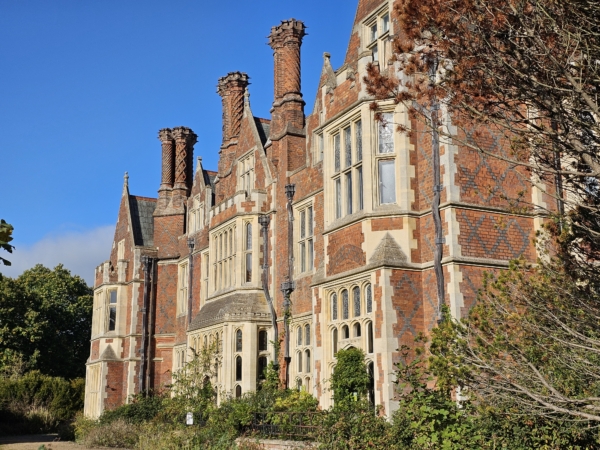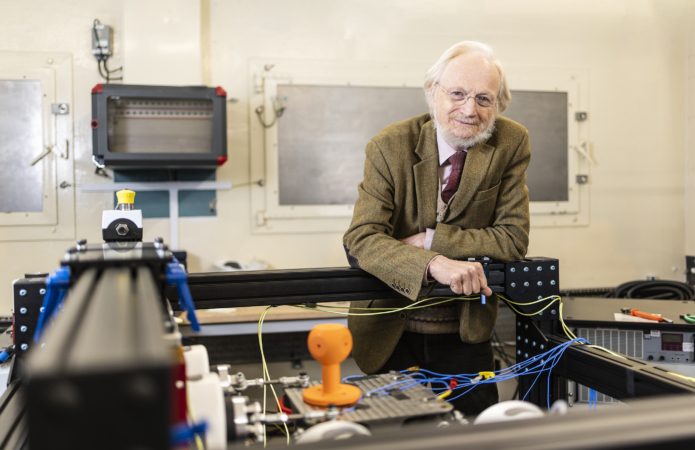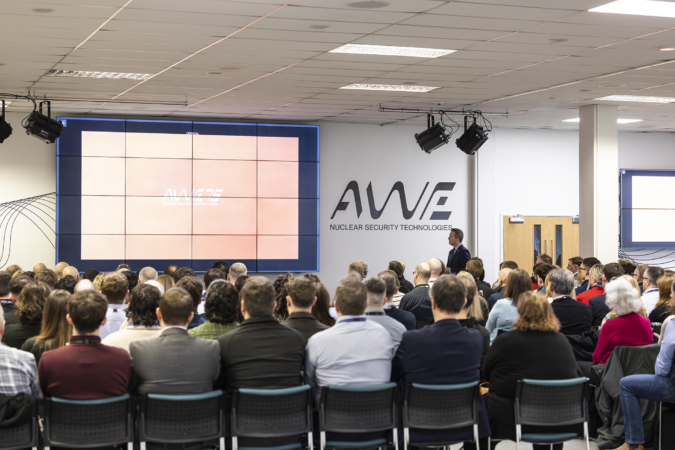William Penney Fellow Conference hits the mark
Eight of AWE’s William Penney Fellows (WPFs) gathered at the William Penney Fellow Conference, held in Armourers’ Hall in London, in September, to discuss and debate technical areas of mutual interest and considered vital to AWE’s mission now and in the future.
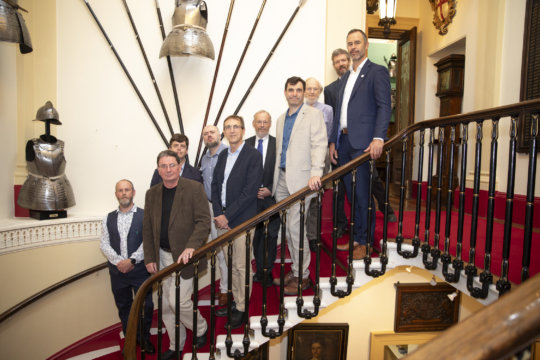
Sponsored by AWE, the WPFs act as ambassadors for our company in the scientific and technical communities in which they operate – at the top of their respective fields.
Those WPFs who attended were Professor Jeremy Chittenden, Imperial College London; Professor Ian Hall, The University of Manchester; Professor Paul Sellin, University of Surrey; Professor Paul Stevenson, University of Surrey; Professor Tom Scott, University of Bristol; Dr Hugh Goyder, Cranfield University; Professor James Marrow; University of Oxford; and Professor Justin Wark, University of Oxford.
During the event, the WPFs were split into various groups and debated a diverse range of ‘grand challenges’ in STEM for AWE. These included emerging technologies like AI, machine learning, supercomputing, smart sensors, and digital twins. They spoke about specific areas of STEM and where investments should be made at AWE to support the future programme – as well as UK academia and the private and public sectors.
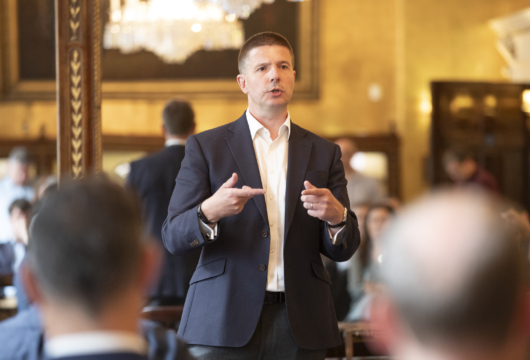
AWE Chief Technologist, Giles Hartill, said: “It was a really insightful day. Our William Penney Fellows are a key asset for us instrategically important universities. I welcomed the opportunity to meet with our senior academics and discuss some of the biggest challenges and opportunities in research, technology, recruitment, learning and development for our people, as we rapidly increase national capabilities for our mission ahead.”
Discussion also covered nuclear capability across the defence enterprise and how the UK should tackle recruitment and the development of nuclear skills and knowledge – to help inspire future generations into university and the nuclear industry.
AWE Chief Scientist, Rob Lock, said: “This workshop with AWE’s valued William Penney fellows explored lots of interesting and challenging areas in science and technology research, skills and training that face the UK. The William Penney Fellows provided some thought-provoking insights into how key areas of science and technology are evolving and advancing – and what that might mean for AWE.”
The conference was organised by the External Technical Partnerships (ETP) team whose role is to facilitate and coordinate key strategic partnerships and collaborations, whilst driving value for AWE’s internal and external stakeholders.
AWE Head of External Technical Partnerships, Toni Lilly, said: “This workshop brilliantly demonstrated the value and insight that can be gained from bringing AWE’s William Penney Fellows together with senior members of our technical community to debate the broader issues that we collectively face. My thanks to all the attendees, but especially the team for facilitating an extremely productive event.”

